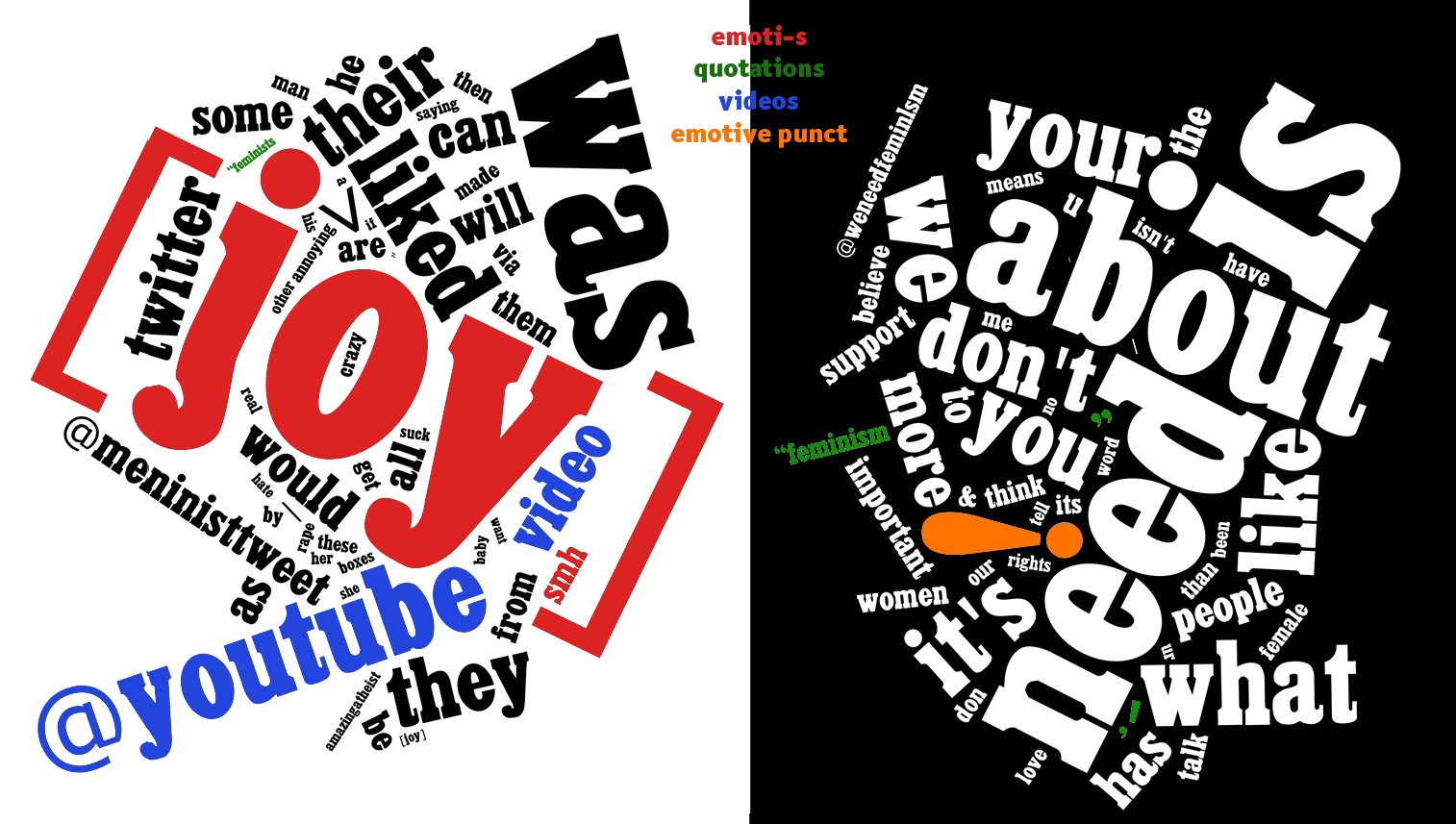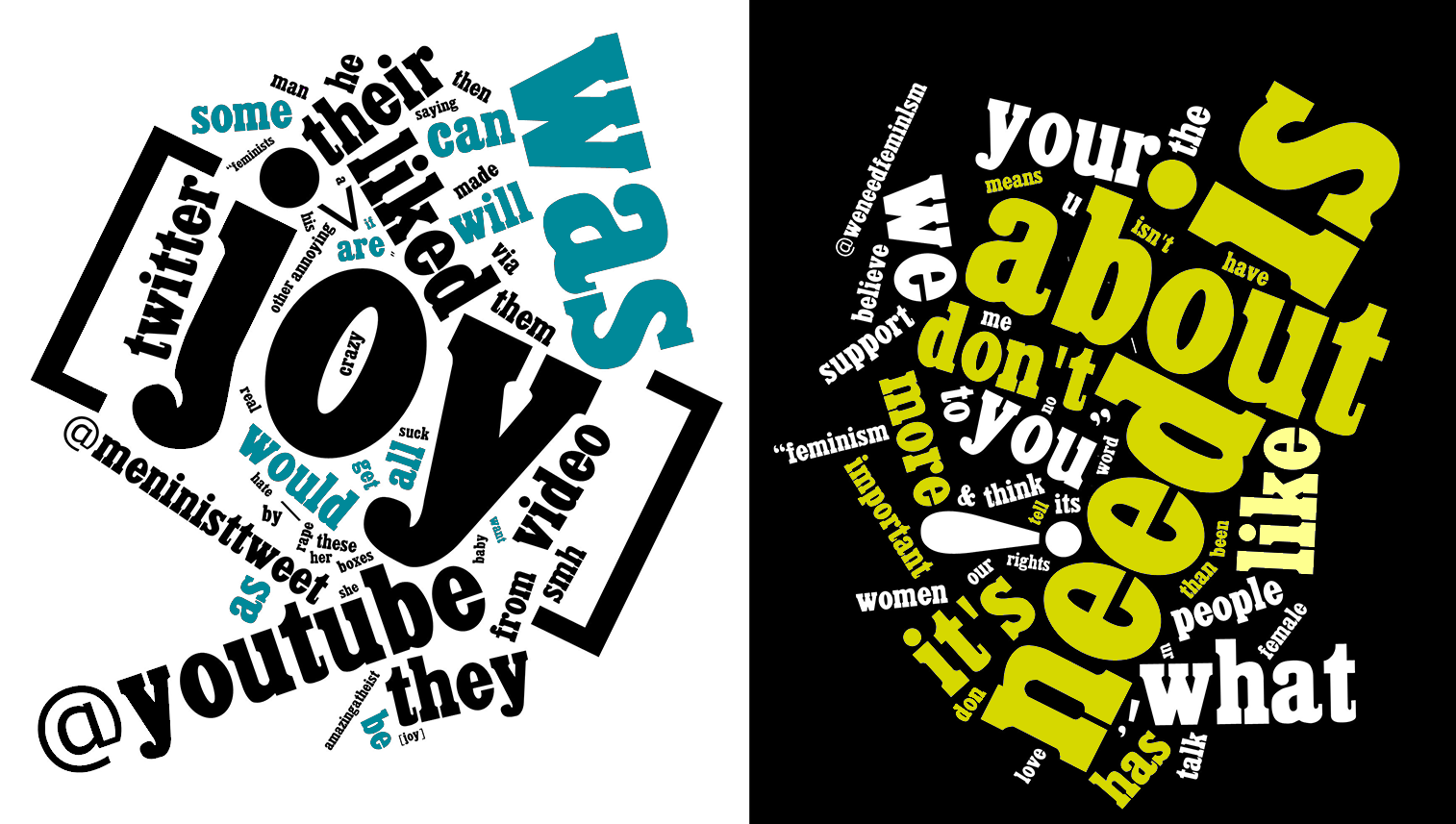Attitude analysis and corpus analytics of 1M tweets about feminism
Zafarali Ahmed
Jerome Boisvert-Chouinard
Dave Gurnsey
Nancy Lin
Reda Lotfi
David Taylor

Big Data Week Montreal Hackathon
April 26, 2015
Attitude Analysis vs Sentiment Analysis
People use negative-sentiment words to support or oppose
"I hate feminism!"
vs.
"I hate it when people mock feminism!"
Ongoing problem: how do you read intentions?
Methodology summary
- retrieved last 100 tweets containing "feminism", "feminist" or "feminists" every 15 minutes for 5 months
- manually classified 500 tweets as pro-, anti-feminist or neither
- parsed without stopwords, with punctuation
- trained Naive Bayes classifier with 50-55% test set accuracy, predicted attitude of 391,000 original tweets
- calculated log-likelihood of each token (word, symbol, punctuation) appearing in the pro-feminist corpus or the anti-feminist corpus
Principal limitation:
small training set
Mechanical Turk
Active learning
Make method more robust, can turn it into a tool to predict attitudes, not just sentiments
Results
Did we succeed in differentiating the language used by pro- and anti-feminists?
SEARCH TERM KEYNESS:
"feminism" more likely to return pro-feminist tweets
"feminists" more likely to return anti-feminist tweets

Plot.ly

Let's explore the keyness differences between the two corpora!
Anti Pro

Some initial patterns
Note: [joy] = emoji 'face with tears of joy'


Ascribing
&
Predictive
Describing
&
Defining
vs

Running experiments
HPC
rocks!